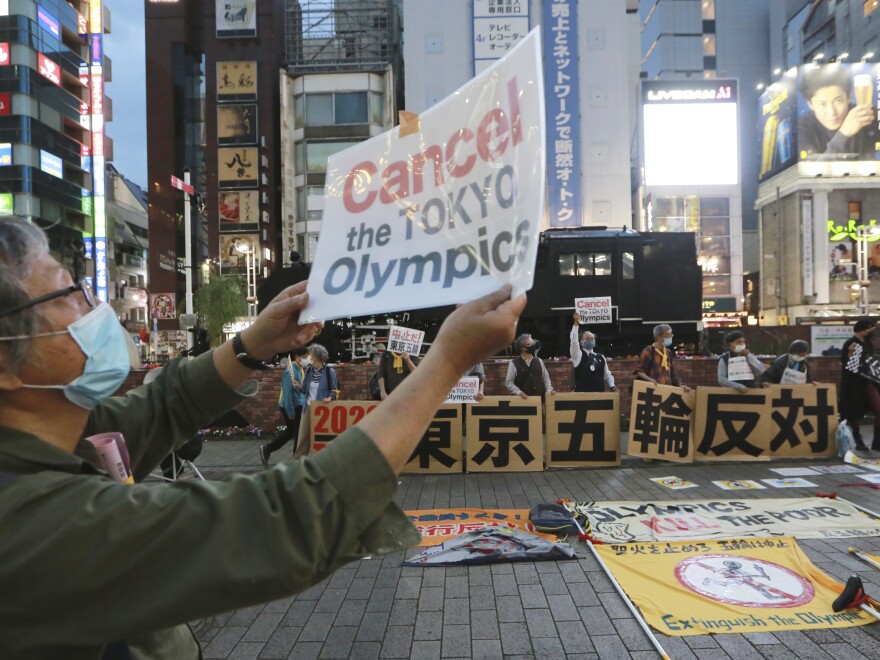With much of Japan in a renewed state of emergency due to a spike in coronavirus infections, a group representing some 6,000 primary care physicians in Tokyo has called for the Summer Games to be canceled.
In an open letter to Japanese Prime Minister Yoshihide Suga published Monday on its website, the Tokyo Medical Practitioners Association says hospitals "have their hands full" and have almost no capacity left to deal with a possible outbreak triggered by the massive international event.
The association says it wants the government to persuade the International Olympic Committee to cancel the games.
Local governments of towns hosting Olympic events outside Tokyo also say they have no hospital beds to spare and refuse to set aside facilities for athletes when they are needed for local residents.
The 2020 Games, already postponed by a year because of the pandemic, are scheduled to begin in 66 days. Suga insists that the games, which will be held without foreign spectators, will proceed as scheduled.
Going ahead with the games this summer has become highly unpopular in the host country. A poll last weekend by The Asahi Shimbun newspaper found 83% of respondents want the games canceled or postponed again.
Mark Katkov reported from Washington, D.C.; Anthony Kuhn reported from Seoul, South Korea.
Copyright 2021 NPR. To see more, visit https://www.npr.org.



